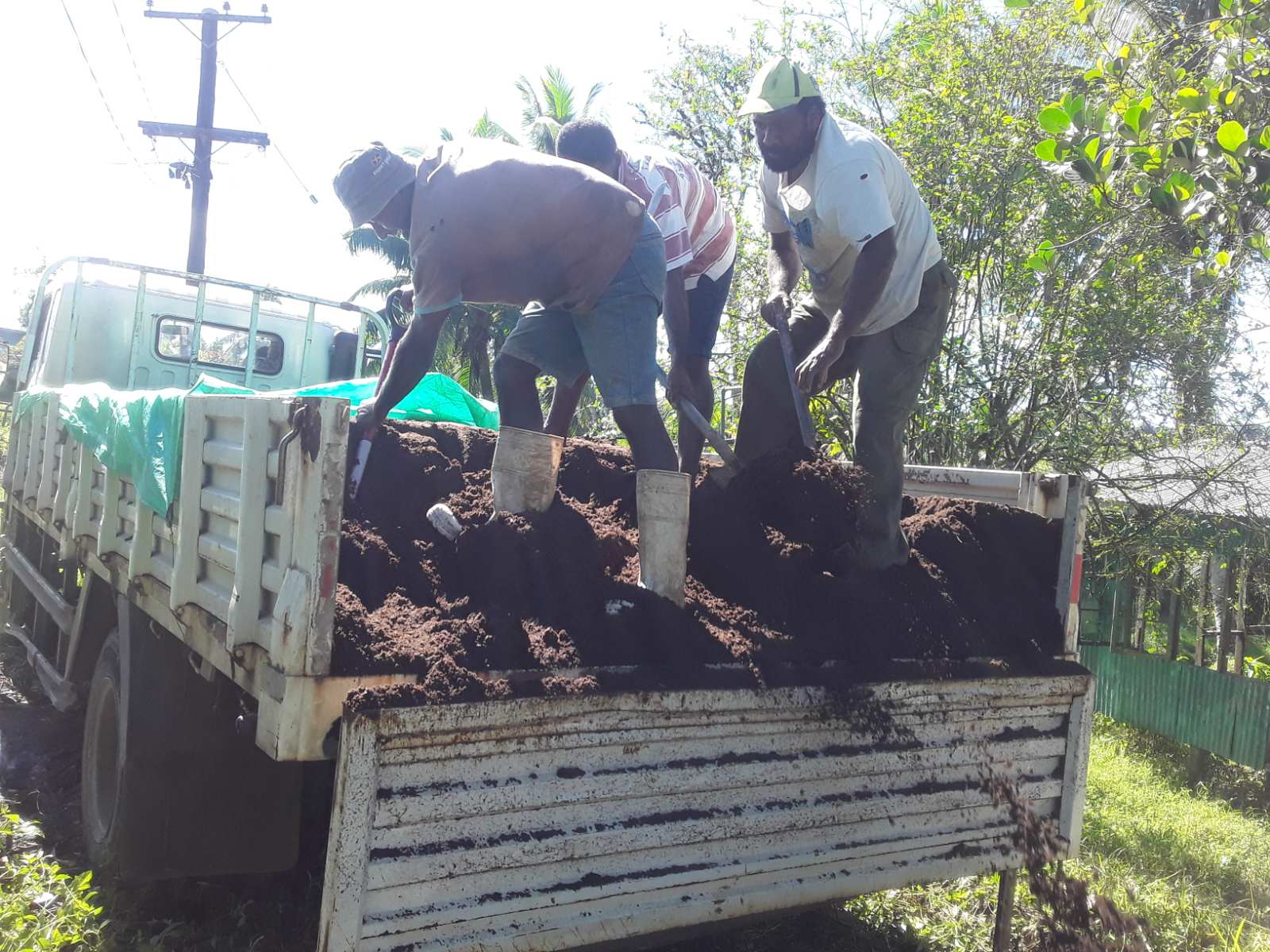Compost Fertiliser delivered to rural villages and communities to improve soil health and sustain agriculture land for long term food security
August 13, 2021

Picture: Unloading of compost fertilizer at Delaitoga village.
Forty
villages on Viti Levu are targeted to receive compost fertilizer from the
Ministry of Agriculture in the new financial year 2021-2022 with plans to
expand the scope to include liquid organic fertilisers, reveals Agronomy
Research Team, Senior Research Officer, Dr Tekini Nakidakida.
“This project
will assist small holder farmers to continue farming without the need for
chemical fertilisers. The compost fertilizer will sustain their soils and
reduce pollution in rivers, streams and coastal areas,” Dr Nakidakida
explained.
He said
reduction on the reliance of chemical fertilisers would only be realized
through ‘just transition’.
“It will be
easier for small holder farms to make the switch to organic fertilisers. Taking
that into consideration and the need to reduce chemical pollution of
watersheds, we chose remote communities or villages in the highlands and along
the coast,” he enlightened.
He said the
rural communities were advised how to apply the finished compost given they
were already using manure on their farms.
Dr Nakidakida
added that 40 villages were targeted in the last financial year and distribution
was currently underway in the Central and Western Divisions.
“Medium and
large scale farms will be targeted in this financial year 2021-22, after more
awareness of the need to adapt to sustainable production systems.”
Agriculture
Permanent Secretary, Mr Ritesh Dass had said the Organic Initiative of the
Ministry targeted to reduce Fiji’s consumption on chemical fertilisers, improve
soil health and soil carbon, improve soil biodiversity and sustain agricultural
land for long term food security.
He pleaded
with farmers to practice sustainable agriculture and not to abusively apply
chemical fertilisers.
“Agriculture is very vulnerable to climate change and it is only with Climate Smart Agriculture that we can sustain our food system and socio-economic well-being,” Mr Dass said.
The Permanent Secretary said the Ministry understood the importance of chemical fertilisers and recognized their contribution to the economy, at the same time, it was mindful of protecting and sustaining agricultural soils for long term food and nutrition security.
This project is one of five new programmes of the Ministry announced in the Budget for 2021-2022 called the ‘Promotion and Production of Organic Fertiliser Progamme’ with a funding of $190,000.
-ENDS-
